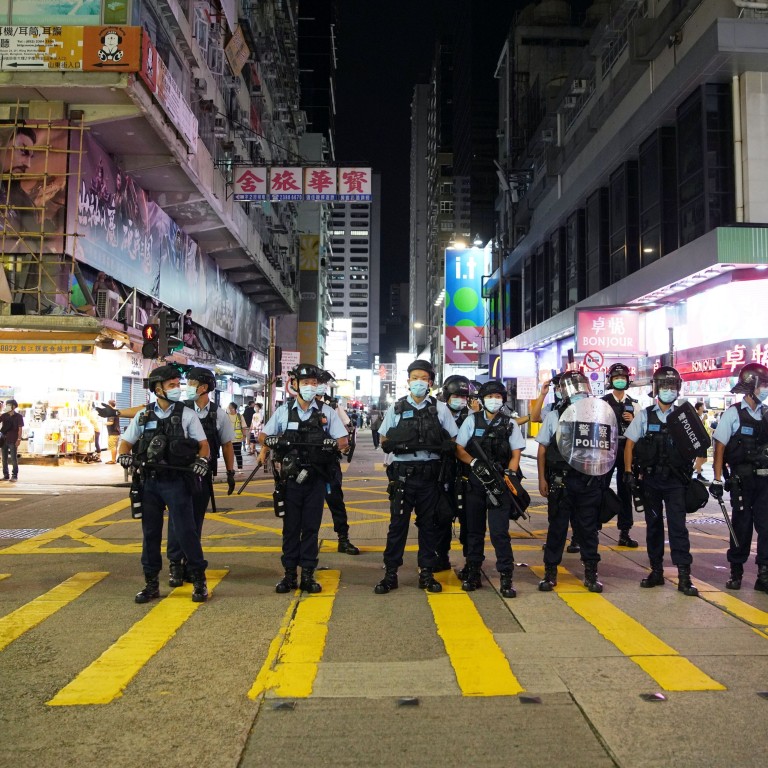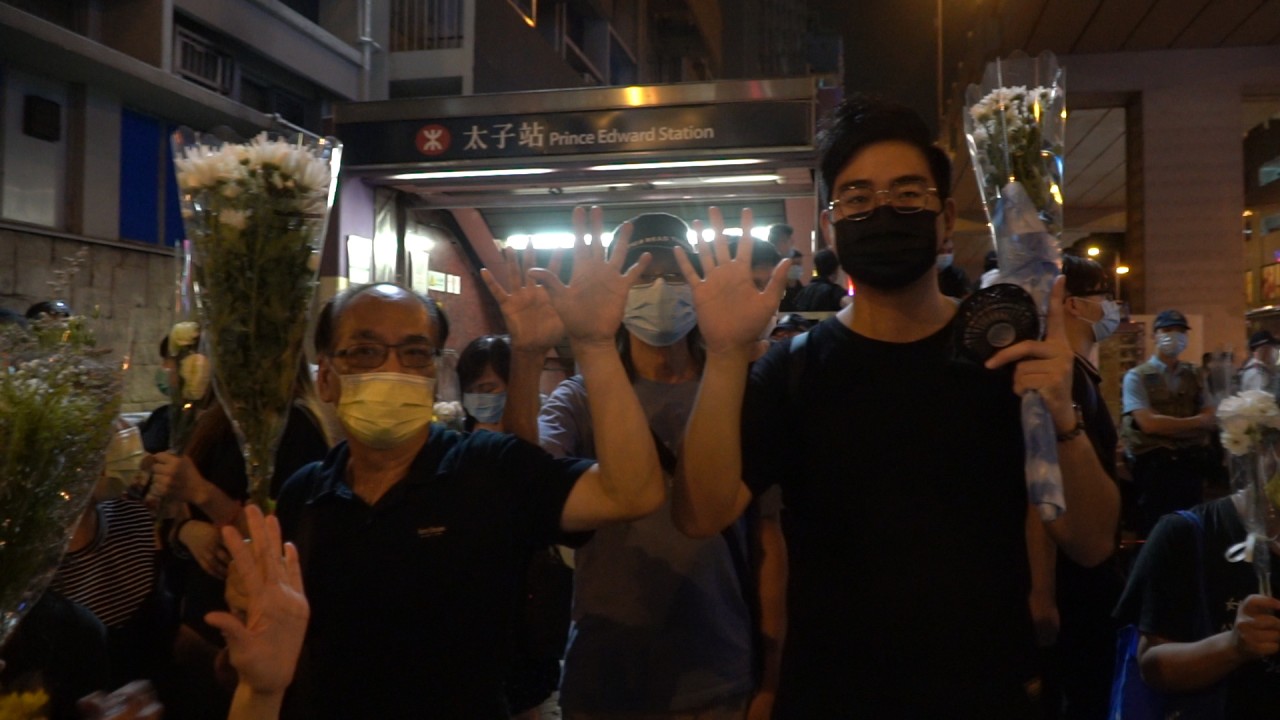
The national security law hasn’t brought back the old Hong Kong. Rather, it has created a new, unfamiliar place
- Peace has been restored to the city, but at what cost when people cannot even place floral tributes outside an MTR station?
- The new law has only instilled fear and Hong Kong can never be at peace with itself until the underlying causes of last summer’s uprising are addressed
That’s not the Hong Kong we know. Nor is shoving a pregnant woman to the ground, as police reportedly did during a scuffle with protesters. But remnants of the old Hong Kong were on display when thousands showed up to place flowers, unafraid of the new law.

01:29
People gather in Mong Kok to mark one year since MTR station violence
What about her cabinet comprised of top government officials and outside advisers? Weren’t there any among them politically savvy enough to warn against the bill, or did she not listen?
Why we should be very worried about Hong Kong’s Class of 2020
The painful summer last year should have provided enough lessons for our administrator about the political pitfalls of speaking too cockily. But the humility she briefly showed at the height of the protests, when she admitted her missteps, has been replaced with arrogance.
Lam faulted people for citing judges who stated there was “separation of powers”, dismissing such claims as a misunderstanding of the Basic Law. Is she saying Hong Kong’s top judges don’t understand the Basic Law?
Who do you think has a better grasp of the Basic Law, our top judge or our chief administrator? The phrase “separation of powers” is not in the Basic Law but several clauses clearly imply it.
Some of what Lam said in her TV interview proved her admission of how little she understands the politics of Hong Kong. She criticised the parents who took their children to the protests, pledging to educate them.
She accused the media of unbalanced reporting but said it would be hard to rectify their mistakes as Hong Kong is an open society with press freedom. She wanted the media to rectify their mistakes themselves by being more balanced.
Educate parents? Rectify mistakes? Isn’t that Chinese communist jargon? What yardstick of balance should Hong Kong’s media use? That of the Hong-Kong-based Beijing-friendly TV station that interviewed her?
We need to dispel Lam’s claim that the security law has brought back the old Hong Kong. It has only instilled fear without addressing the underlying causes of last summer’s uprising. Hong Kong can never be at peace with itself until we face up to why youngsters hurled petrol bombs, why millions marched, and why some believe people died during the police storming of Prince Edward MTR station.
Michael Chugani is a Hong Kong journalist and TV show host

